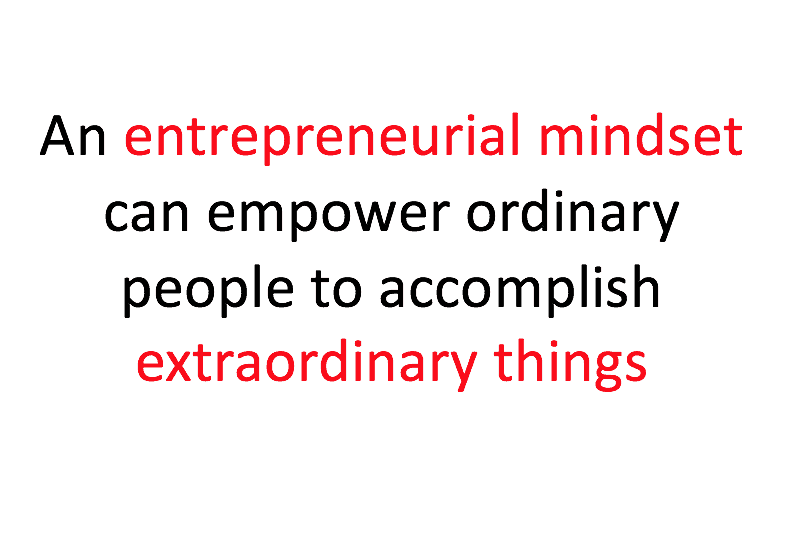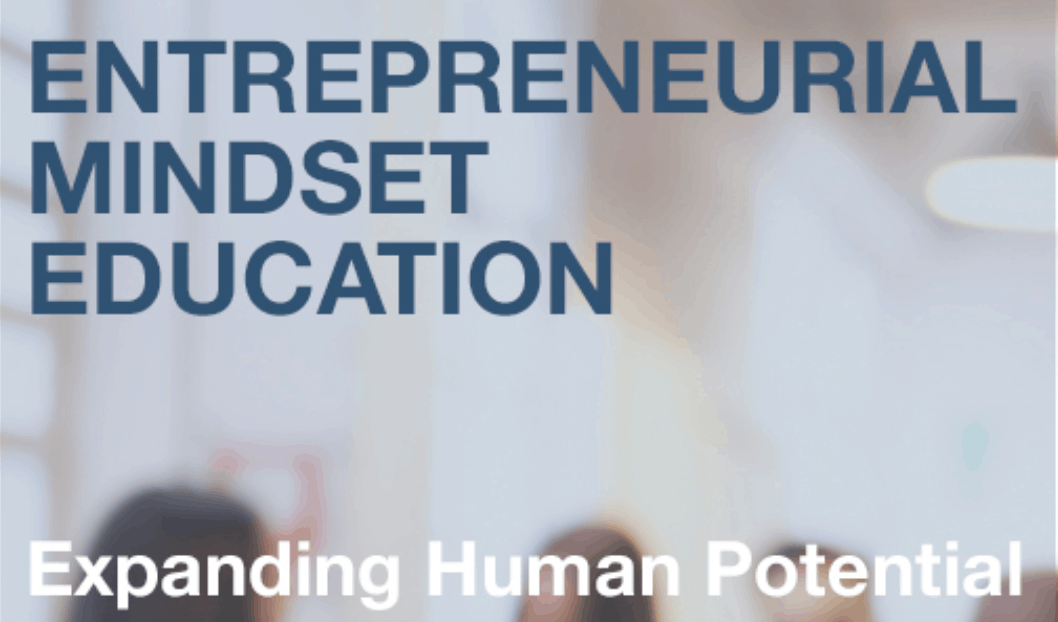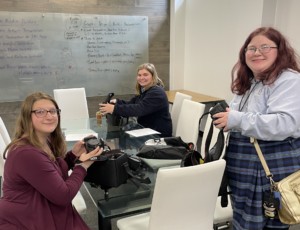Entrepreneurship Education Reimagined

Gary Schoeniger
In today’s highly dynamic and interconnected world, the need to encourage and support entrepreneurial thinking at all levels of society, including the public, private, and non-profit sectors, is rapidly becoming a global imperative. Policy makers from the White House to the World Economic Forum have identified entrepreneurship education as essential to building future societies. Such individuals have described entrepreneurship education as “essential for developing the human capital necessary for the society of the future. It is not enough to add entrepreneurship on the perimeter – it needs to be central to the way education operates.”
And while entrepreneurship education initiatives permeate campuses and small business development centers, the entrepreneurial mindset is often not well understood.
Consequently, our ability to prepare students with 21st century skills is limited in terms of both efficacy and scope.
For many, the term “entrepreneurship” is associated with starting a business, and our efforts are often focused on venture backed high-growth firms. Yet very few businesses actually begin in this manner, prompting some to express growing concerns over programs that are focused primarily on “high-tech, fast-growth companies, pushing students toward competitions and ventures prematurely or inappropriately.”
Others are focused on small business initiatives that encourage aspiring entrepreneurs to develop business plans and financial projections hoping to acquire small business loans. And yet, while these skills may be important for managing an existing business with a proven product or service, they often inhibit the entrepreneurial process – the process of searching for a problem-solution fit. And, it goes without saying that the process requires search skills – skills that anyone can learn to develop, yet skills that have historically been undervalued, overlooked, or ignored.
Searching begins with curiosity and observation – an awareness and understanding of the broader world around us. Searching requires empathy – the ability to identify and solve problems within highly ambiguous, resource-constrained circumstances.
Searching requires us to think critically – to formulate hypotheses and test assumptions. It requires us to experiment, to be self-directed and resilient, to learn from experience, to reflect, to self-regulate, and to adapt.
For most, searching requires us to think and act in unfamiliar ways. It requires us to deviate from social and cultural norms and to challenge the status quo. Searching requires us to think and act when the rules are unknown, where no one is in charge, and no one is coming to the rescue.
Equally important is what the search process does not require. Searching for a problem-solution fit does not require a special personality or unique traits. It does not require an interest in technology, computer science, or an MBA. Searching does not require a big idea with obvious high-growth potential, access to venture capital, or small business loans. Nor does it require us to quit our job and expose ourselves to enormous risk. In fact, the process of searching for a problem-solution fit does not require an interest in starting a business at all.
Searching simply requires what Harvard’s Clayton Christensen refers to as discovery skills – skills that have become necessary for anyone to thrive in today’s interconnected, rapidly changing world, whether they intend to work within an established organization or create something new.
An entrepreneurial mindset can empower ordinary people to accomplish extraordinary things. It offers a new framework for thinking and acting that exposes opportunities within any set of circumstances, within any domain. Entrepreneurial thinking can lift people from poverty, help build vibrant new economies, and empower the next generation to solve the greatest challenges of our time.
If we are to encourage and support entrepreneurial thinking at all levels of society, we must first define entrepreneurship in a way that anyone can embrace. To shift entrepreneurship from the perimeter to the core of how education operates, we must examine the institutional and organizational factors that inhibit the development of entrepreneurial attitudes, behaviors, and skills.
We must also recognize that, while not every student aspires to manage a business or start a high-growth firm, we all want to be engaged in work that matters, to be self-directed, and to have the opportunity to apply our interests and abilities to something greater than ourselves.
To truly understand the entrepreneurial mindset, we must look beneath the surface, beneath what social psychologist Edgar Schein referred to as the “visible artifacts and the espoused values to understand the unconscious.” We must also look beyond the taken-for-granted beliefs and assumptions that reveal what Schein refers to as “the ultimate source of values and actions.” Once this is accomplished, a powerful understanding of motivation and untapped human potential begins to emerge.
For more, check out:
- Smart List: Connecting & Supporting Entrepreneurs
- Awarding and Supporting Teacher Community Focused on Student-Centered Entrepreneurship
- Carving out a Career as a Creative Entrepreneur
Gary Schoeniger is founder of The Entrepreneurial Learning Initiative. Follow The Entrepreneurial Learning Initiative, @elimindset. This blog first ran on KEEN, a network for entrepreneurship in engineering sponsored by the Kern Family Foundation. Check out this video for more.
http://keennetwork.org/blog/?p=2686






Yuri
Great article!